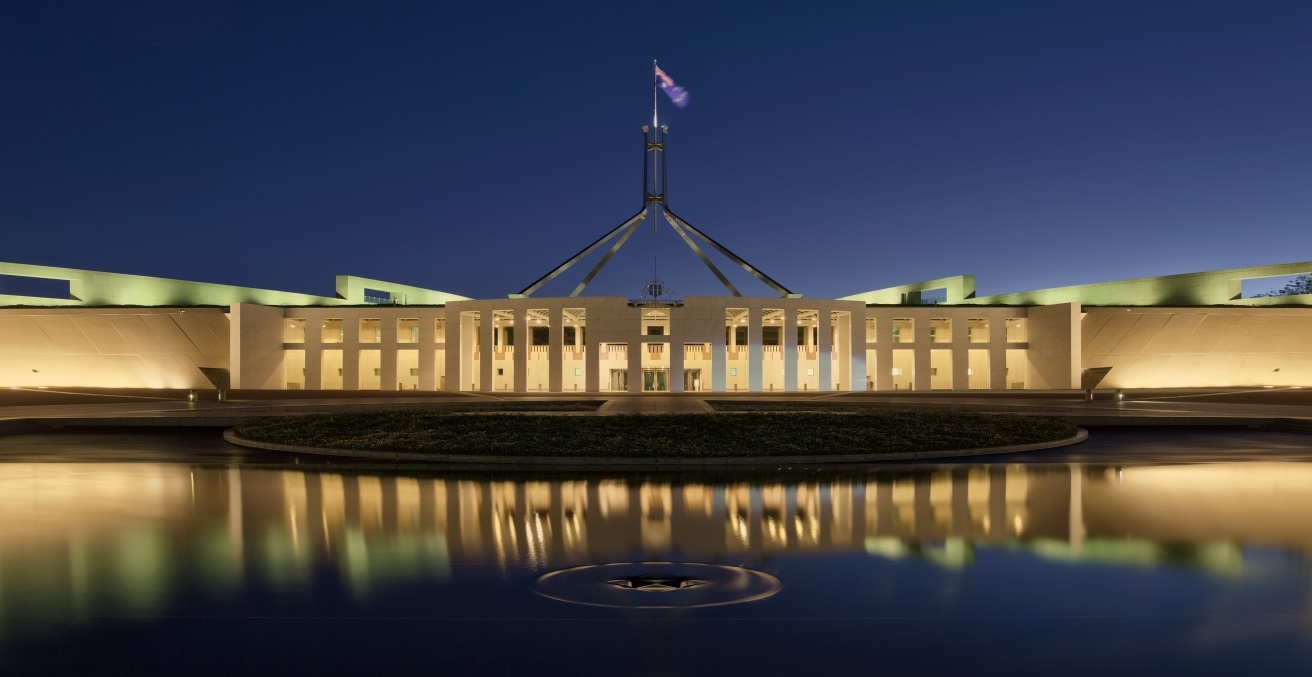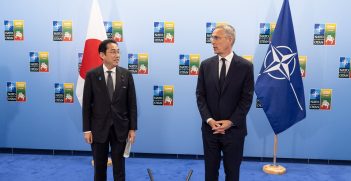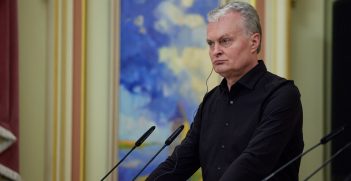15 March 2024: The Week in Australian Foreign Affairs

This week in Australian foreign affairs: Albanese addresses US TikTok ban; new AUKUS Sub concerns for Australian defence; new ambassadors announced; Chinese sanctions on Australian wine, and more.
Prime Minister Anthony Albanese addressed questions on 14 March about the US banning of TikTok and whether Australia would follow suit. He asserted that decisions in Australia are “based upon our own security assessments,” meaning “that on phones that have sensitive material, such as government phones, we do not have TikTok.” For the time being, there were no plans to ban broader Australian access. Also on 14 March, Albanese addressed China’s foreign minister visit next week, stating that he was looking forward to dialogue. He noted that recent relations had produced “significant progress when it comes to removing impediments that were in place to trade between our two nations” and that “there was a good interim decision when it comes to wine just this week – that is a positive development. The wine exports to China were worth in excess of $1.1 billion per annum.”
On 13 March, Deputy Prime Minister and Minister for Defence Richard Marles addressed questions over concerns about the acquisition of United States’ Virginia class submarines. The US Navy has committed to slowing down the production of Virginia class submarines fuelling speculation that Washington may be backsliding on its promises to deliver. Marles stated “that commitment absolutely remains in force,” and further that “the news of the Budget which they have put forward this week […] contain[s] an $11 billion commitment over the next five years to grow the industrial base in the US.” Marles stated that the new US budget “reflects a reality of the tightness of the industrial base today, but looking forward” these investments will see “an increase in the American commitment to their own industrial base. They are living up to the agreement which we all reached a year ago.”
On 10 March, the Minister for Foreign Affairs Penny Wong announced the appointment of new ambassadors to Germany, the Federated States of Micronesia, and Australian representation at Asia-Pacific Economic Cooperation (APEC). Ms Natasha Smith (Germany) “is a senior career officer with the Department of Foreign Affairs and Trade (DFAT) and was most recently First Assistant Secretary, Multilateral Policy, First Nations and Human Rights Division. She has previously served overseas as High Commissioner to Canada, as well as previous postings to the United Nations in New York and in Indonesia.”
Ms Jenny Grant-Curnow (Federated States of Micronesia) is a career officer with DFAT and was most recently Acting Assistant Secretary, Key Sectors Branch in the Office of the Pacific. “She has previously served overseas as Head of the Representative Office to the Occupied Palestinian Territories, Ramallah; Political Counsellor in New Delhi; and undertaken short-term missions as Acting Head of Mission in Tuvalu, Nepal and Qatar. Ms Grant-Curnow has also previously served in peacekeeping operations for the United Nations.”
Ms Elizabeth War (APEC) is a senior career officer with DFAT “and was most recently Australian Consul-General in Hong Kong. She has previously served overseas in the United States, India and Egypt.” At APEC, Australia’s focus “includes advancing services and digital trade, structural economic reform, trade in environmental goods, gender equality and the economic empowerment of women and Indigenous Peoples.”
On 8 March, Wong joined Minister for Infrastructure, Transport, Regional Development and Local Government Catherine King to commemorate the disappearance and search efforts of MH370 10 years on. 239 passengers and crew, including seven Australians, lost their lives. “Australia coordinated what was one of the biggest search operations of its kind in history when the aircraft disappeared, searching over 3 million square kilometres above the water and more than 120,000 square kilometres under the water.”
On 10 March, Minister for Trade and Tourism and Special Minister for State Don Farrell addressed questions on trade sanctions with China and whether wine would be lifted soon. He stated that Chinese authorities had agreed to expedite a review of tariffs in exchange for Australia to drop its World Trade Organization dispute with China. Farrell noted that “that process is coming to an end now and by the end of March that process will be completed. The Chinese trade minister confirmed that to me the week before last in the United Arab Emirates. So, we’re now simply waiting for China to complete its processes.” Farrell has met with his “Chinese counterpart six times in the last 18 months,” but cautioned that if no resolution was forthcoming that government would return to the WTO.
Meanwhile, on 9 March, Assistant Minister of Foreign Affairs Tim Watts joined Minister for Social Services Amanda Rishworth to announce that the government was entering into negotiations with the Lithuanian Government on a bilateral social security agreement. The agreement is projected to “deepen the ties between Australia and Lithuania, but also has the potential to benefit businesses as well as citizens. The agreement builds “on Australia’s existing portfolio of 32 international social security agreements, following the recent commencement of the Social Security Agreement between Australia and the Republic of Serbia.”
Dr Adam Bartley is the managing editor for AIIA’s Australian Outlook and weekly columnist for The Week in Australian Foreign Affairs. He is a former Fulbright Scholar and resident fellow at the Elliot School for International Affairs, the George Washington University. Adam also has positions as post-doctoral fellow at the Centre for Cyber Security Research and Innovation RMIT University and as program manager of the AI Trilateral Experts Group. He can be found on Twitter here.
This article is published under a Creative Commons License and may be republished with attribution.





